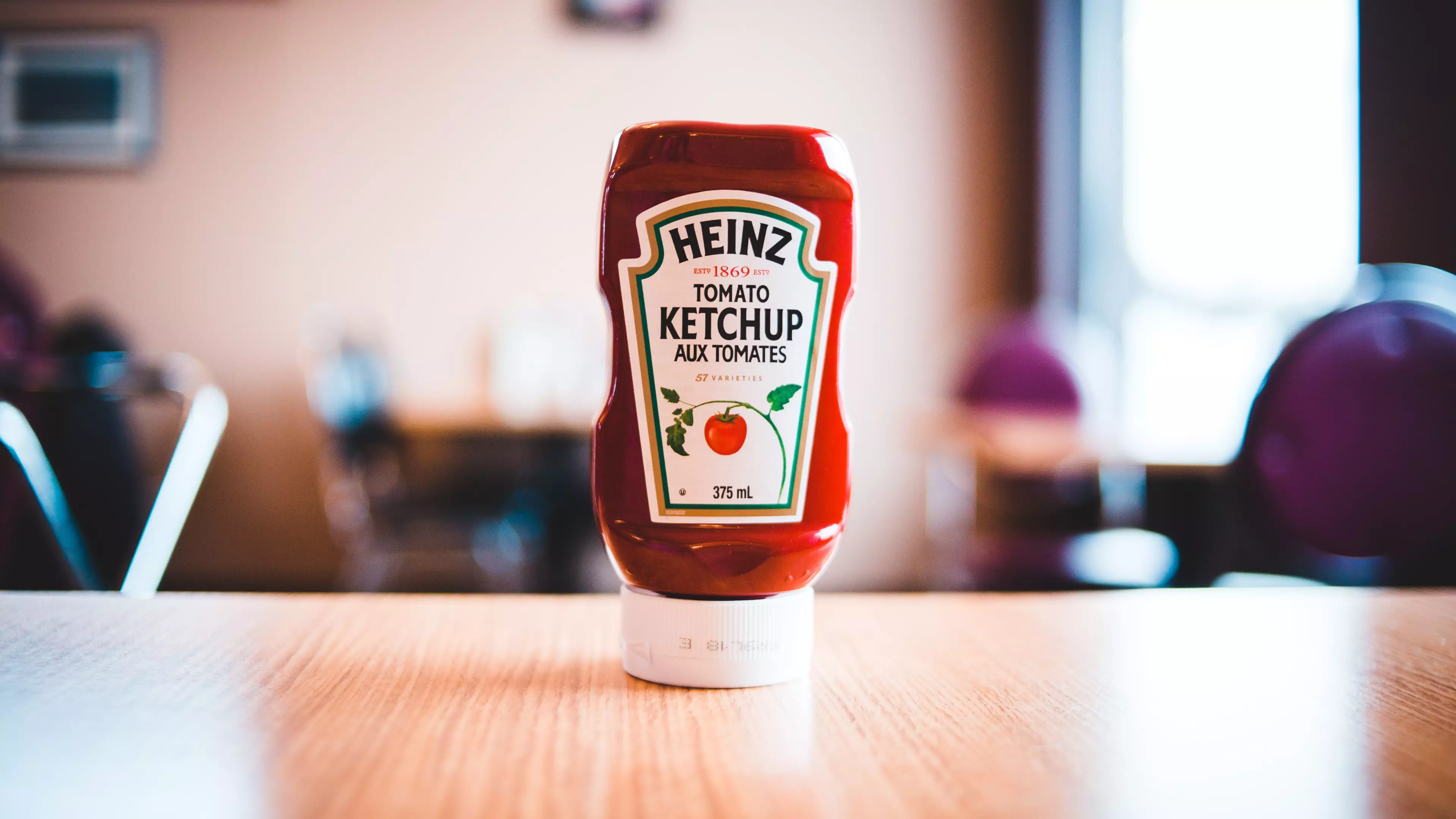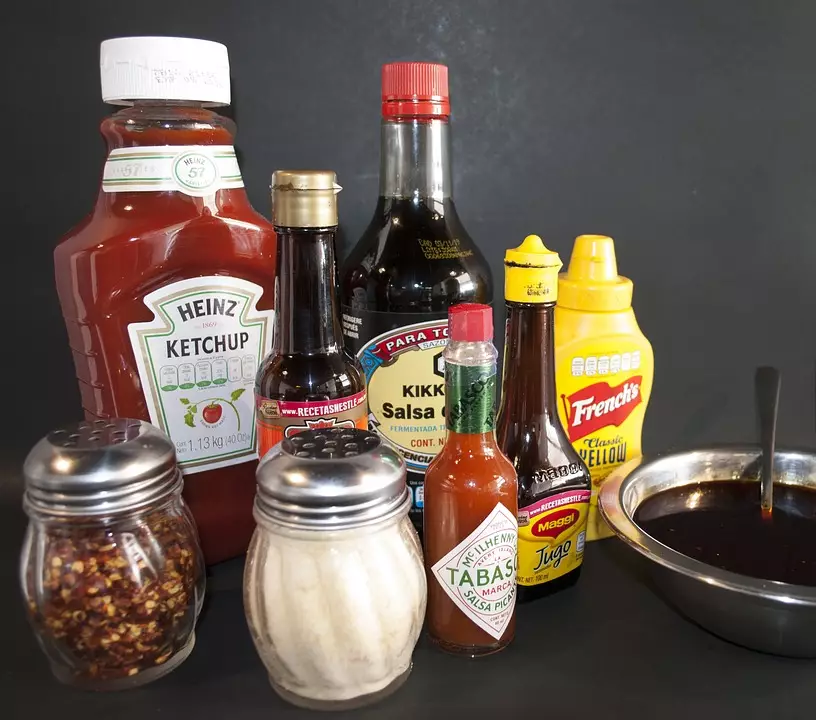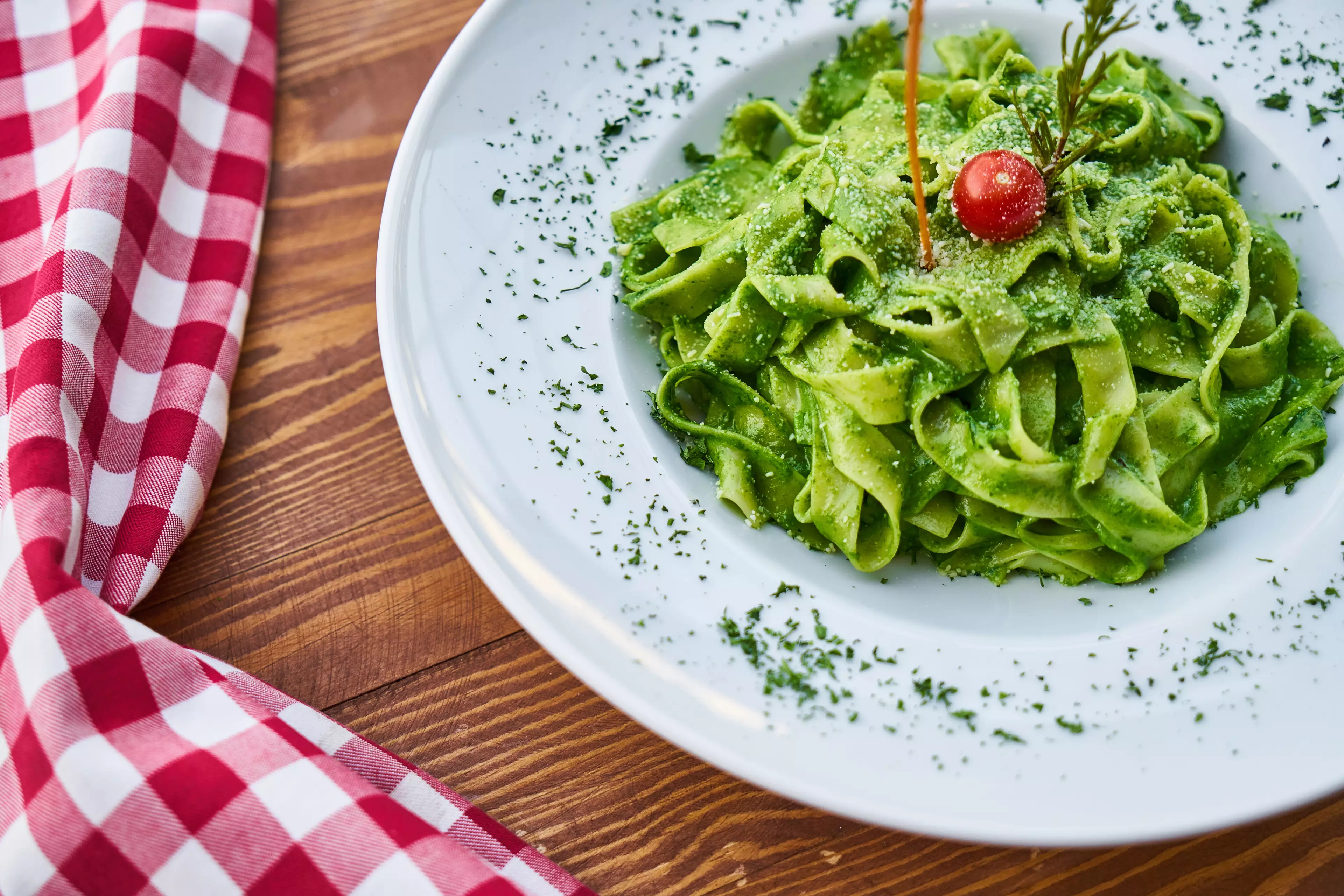
It's the age-old question: where are you meant to keep your ketchup?
Some prefer to keep the condiment cool in the fridge, while others store it in their cupboards at a happy room temperature.
Advert
The kitchen conundrum has been dividing people for years and caused wars in the household. But who's correct?
According the the labels on the major brands, the tomato-based condiment should be refrigerated once opened - and you should *always* listen to the label, right?
Well, apparently not, according to a new study by Which?, where experts say despite the label advice, there's no need to keep the table-side fave chilled.
The research, which sought to investigate the country's condiment habits, included expert advice from a public analyst, a special adviser on food and drink, and registered dietitian Dr Sarah Schenker.
Advert

It explained that not only does the condiment contain vinegar - a natural preservative - but that tomatoes are naturally acidic, helping them keep in room temperature conditions.
"Sometimes people keep ketchup in the fridge, simply because they prefer a chilled taste, but otherwise it doesn't need to be refrigerated," Dr Schenker says.
Who knew, eh?!
Advert
And according to Which?, the same can be said for a ton of condiments that advise you should refrigerate on the label.
For instance, mint sauce labels advise you should the pop the lamb-accompaniment in the fridge after opening, but because of its high vinegar content, this just isn't necessary.
Similar can be said for pickle, soy sauce, mango chutney, hot sauce and piccalilli which contain ingredients such as acetic acid, sugar and salt which act as preservatives.
Even English mustard can be popped in your cupboard.

According to experts, the advice to refrigerate mustard is only given to preserve the colour, which may change in warmer environments; but if you're not fussed about the tones of your condiment, to fridge or not to fridge is simply down to personal preference. This is the same for Dijon and wholegrain.
Advert
However, it should be noted, a Food Standards Agency (FSA) spokesperson told Tyla: "People should read food labels and follow the manufacturer's 'open life' instructions once they've opened a jar or bottle, to find out where to store products and for how long."
So if you're still a bit sceptical about leaving things out of the fridge, then you do you.
Of course, there are a few condiments that *must* be kept cool because they contain egg which can spoil in warmer conditions. These include mayonnaise, salad cream, and tartare sauce.
One jarred sauce you should always keep in the fridge is pesto.
Advert
Nuts in pesto can act as a breeding ground for mould that can produce bacteria called mycotoxins that can even cause liver damage.

Dr Schenker explains: "Mould can be hard to see on pesto (especially if it's green), so don't take any chances either way, and stick to the label advice."
Maple syrup and red current sauce should also be chilled after opening, as although they contain sugar, a preservative, the content is not high enough to stop bacteria growing.
Which? said: "When we questioned consumers on how they store their sauces and condiments, we discovered a lot of confusion, misinformation and downright bad habits - including ones that could be putting their health at risk."
Well, at least we know now, eh?
*Slowly puts maple syrup in fridge*.
Featured Image Credit: UnsplashTopics: Food and Drinks, Tasty